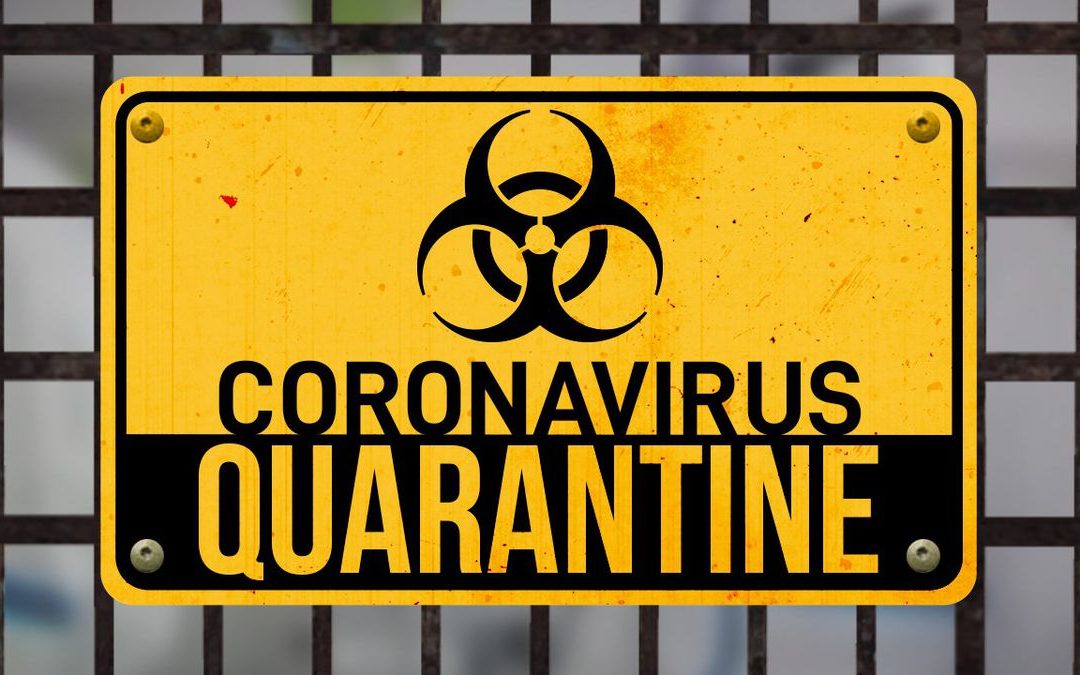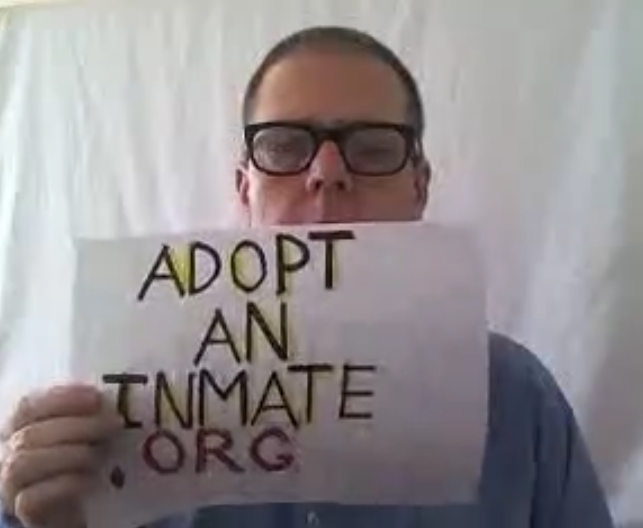
by Jacob (Justin) Gamet | Feb 3, 2021 | From the Inside
I recently read this July 2020 article written by David Waldstein about whether racial slur words should be officially banned from Scrabble tournament play, and while some black Scrabble players want the ban, others do not. (There are supposedly 225 offensive terms on the chopping block.)
Proponents (those in favor) of the ban say words matter. Opponents disagree, one of which being Noel Livermore who says that he refuses to lose a game for not using a slur. If a word exists that will win him the game, he’ll use it. I surmise that he’s more of a “Sticks and stones may break my bones but words will never hurt me” kind of guy, which leads me to think he’s drinking his own Kool-Aid.
I don’t believe there’s any half-reasonable person who sincerely believes words don’t matter. In fact, Rudy Kipling once said, “Words are, of course, the most powerful drug used by mankind.”
If words didn’t matter, why then are people bedazzled by books, poets and playwrights? Why then do people spend hours and hours playing Scrabble? Furthermore, sociology and psychology have long established that the negative impacts of verbal abuse are far more damaging and last much longer than physical abuse.
A Scrabble player myself, I believe it’s obvious why Livermore wants to leave the slur words. I’ve played many guys like him. Unfortunately, they’re willing to win at all costs and by all means. They’re more interested in the accolades of winning than the impact words have on others. They’re egocentric and lack “Wintegrity” (i.e., grossly lacking in game-winning integrity).
When I play guys, sometimes there isn’t a dictionary handy to challenge one another’s words. So I tell them I’ll do my best to inform them on the correct and incorrect words. They look at me sideways and say why should I believe you? I tell them that I’m fallible, but also that I’d rather lose one game to them rather than raise doubts as to my winning reputation that took me years to build.
I literally caught guys cheating during games in just about every way imaginable. I never made a big deal out of it because I understand that the desire to win compels people to compromise their wintegrity. In fact, I see opponents’ cheating as a compliment to my stellar gameplay — I must be good if my opponent feels he or she has to cheat to win.
This issue is far from black and white. For example, John Chew, a nonblack chief executive of the National American Scrabble Players Association (NASPA), said he was told by black players that it wasn’t his fight. And John McWhorter, a black professor of linguistics at Columbia University, says the matter should be decided by Livermore and players like him.
But this issue CAN be decided by someone not black. Deciding this issue has more to do with rightness than blackness. McWhorter’s suggestion is patently erroneous because Livermore’s “blackness” doesn’t qualify him to speak for black people and how they feel. In addition, it’s clear that Livermore is an outlier, a one-off who speaks for himself and disregards the feelings and thoughts of the majority. Indeed, Livermore admitted that he once apologized to a woman for using a female slur but used it anyway to win.
I’m offended by McWhorter’s suggestion that Livermore (and black people like him), a self-centered player who is virtually devoid of wintegrity, should speak on behalf of black Scrabble players. Too often, we blindly assume that an expert’s mastery of one field constitutes his or her good judgment in another. It’s like assuming a psychologist makes excellent parenting decisions.
I’d rather have Chew decide the matter based on his internal rightness than Livermore decide it based on his external blackness. Although the matter makes considerations based on race and color, it doesn’t necessarily require the decision-maker or fact-trier to be a person of color. Judges and jurors — white, black, and otherwise — make just and equitable decisions regarding race and color all the time.
Chew needs to push back against the nonsensical deterrences of those who say it isn’t his fight. Undoubtedly, it’s his duty to ensure that NASPA respects the race and ethnicity of all Scrabble players. If it does not, then he should act swiftly and with full license to stamp out those shameful, offensive embers of the past.
Scrabble is not only a game. It’s also a crucible for testing the integrity of those who engage in a war of words and do so according to the rules of “ethical” engagement. How you win “always” dictates whether you ultimately win in the game of life.
#Wintegrity

by Martin Lockett | Jan 30, 2021 | From the Inside
Time for Oregon to pull back on Measure 11’s mandatory minimums. An opinion piece by one of our featured writers, Martin Lockett in Oregon, published in The Oregonian.
Lockett is serving the final year of a 17-year sentence at Deer Ridge Correctional Institution in Madras.
Seventeen years ago, I drove drunk and crashed into a car that killed two people and injured another. I was 24.
At the time, I was working full-time and attending Portland Community College part-time. In full disclosure, I was no stranger to the law. I was finishing my final two months of post-prison supervision after serving three years for my part in a robbery when I was 19. Nonetheless, I had turned over a new leaf – until my troubled relationship with alcohol led me into the most catastrophic mistake one can make while intoxicated. My victims were in recovery themselves and to learn I had taken their lives was devastating.
While incarcerated, I focused on honoring my victims by doing all I could to help others who struggle with addiction. In order to do this, I knew I would need a formal education. I have earned a master’s degree in psychology and state certification as an alcohol and drug counselor. I have published two books and co-facilitated Mothers Against Drunk Driving-sponsored discussions with family members of those killed by drunk drivers at the Oregon State Correctional Institution. I produced a video of my story that is regularly shown at community panels. Moreover, I have never been written up for a transgression during my 17-year stay. I do not highlight these accomplishments to give myself a proverbial pat on the back but to say none of that will make a single day’s difference in my sentence. Like many others in Oregon’s prisons, I am serving a mandatory sentence which offers zero incentive to change.
My transformation was solely of my own doing, not because any mechanism in the system aided or encouraged it. My education was privately financed, and I was fortunate enough to land at the only prison in Oregon that enabled me to log clinical hours for certification. But I can assure you I am not an anomaly. There are countless others serving 10 – 30-year sentences under Measure 11 who are far different from their young drug-addicted selves who committed crimes decades ago. Yet they have no hope of returning to their communities anytime soon to offer them the benefit of their new knowledge. And while some take the opportunity to change, these lengthy sentences push many others even further into criminality. They know that violating institution rules won’t cost them their chance at a reduced sentence, because they aren’t eligible for it anyway.
I am deeply proud of how progressive Oregon can be when it comes to many things, most recently the decriminalization of possession of smaller quantities of drugs. Legislators also passed reforms to Measure 11 in 2019, recognizing how unfair and unproductive its heavy-handed treatment of juveniles was. Yet, the heart of this law, which dates back to the ’90s tough-on-crime, prison-building era persists.
Since then, many other states have rolled back their mandatory sentencing laws, having seen that harsh sentences don’t translate into safer communities. How is that Oregon still allows this outdated law to operate, needlessly locking up its citizens for decades at a time with no incentive to rehabilitate?
This is not a cry for anyone to feel sorry for me. I am still alive and my victims, sadly, are not. I will be released in June and will carry on with my life happily and productively. But this is not about me — it’s about our state. This is about all those who love Oregon and espouse compassion, particularly when it comes to the treatment of our neighbors. Are those who fall short not our neighbors and members of our communities? Are people deserving of second and third chances in rhetoric only? At what point do we demand our state lawmakers enact legislation that reflects these ideals and principles? When do we demand that our criminal justice system mirror the humanity and compassion we claim to value?
Laws are devised to hold offenders accountable and render justice for the victim. Yet, locking an offender up for 10 years with no incentive to change does neither. Justice can’t be delivered by a formula. And what amends are being made by someone locked in a cage for years, building anger at the system and waiting for their release to do what? Harm more people? When does it stop?
But when people have incentive to change by earning time off their sentence for completion of programs that are useful, chances are they will.
It is no longer 1995. The country has moved on from the tough-on-crime era. It is time for Oregon to catch up and rid itself of counterproductive mandatory minimum sentencing. When legislators convene next month, demand lawmakers take action on Measure 11 — finally.

by Melissa Bee | Jan 29, 2021 | From the Inside
An update from our friend in WSRU in WA DOC – read his post Preparing for Quarantine that he wrote just before being moved. Today he was moved back to general population.
I’m doing great physically. I developed a sore throat (which became a slight cough) and rolling chills for a couple days. Otherwise, I didn’t have any breathing issues, didn’t lose my sense of smell or taste, no headaches, cramps, or other issues.
The section of the IMU I was housed for 7 days was actually comfy. It was spacious, had a 21″ flat screen with cable and a remote, the best mattress I’ve slept on in prison, and I got showers, clothes (t-shirt, boxers, socks, towel, and rag) and phones every other day.
But IMU living wasn’t so good for other guys elsewhere in the hole. One guy said he didn’t get a shower for 5 days. An elderly man tested positive, fell and hit his head and died in IMU. Another didn’t get medical treatment to change his colostomy bag for 6 hours and developed extreme stomach pains. The bag was used after he caught COVID-19. They didn’t get clean bedding or hepastat cleaner. They didn’t have TVs or electric outlets.
Five other guys were were lost after being housed in 3 Seg with probation violators. They reported black mold, freezing cold showers, being given 2 ounces of disinfectant (in a Dixie cup) to clean their cells for two weeks. One guy filed a medical emergency grievance for complications with COPD and asthma (needing inhalers) and staff returned it to him saying it didn’t constitute an emergency. A memo said the water was unsafe. So, they were given 1.05 pints of bottled water every 8 or more hours.
Two of the guys in 3 Seg tested positive, weren’t tracked, and were mistakenly transferred to A/B units and infected guys there.
Yeah, I’m in the gym with about 100+ guys living on cots. There’s some chairs and tables. It’s loud throughout the day, hard to sleep, and a pain to use one of two phones, which can take as long as 1.5 hours.
We don’t have WiFi, but I’m able to send and receive messages because there’s a section of the gym that has one bar of reception. We don’t have enough clothes so we’re hand washing our clothing and linen. Since we all tested positive, virtually everyone is NOT wearing a mask.
We have these portable Royal Restrooms (w/ nonpotable water) outside for showers and bathroom. They’re decent but some are tight on space. Some have half showers. We can watch one of about 20 DVD movies (on 3 TVs) and regular Cable TV (on 2 TVs).
One morbidly obese guy doesn’t have any extra clothing. He sleeps on the floor because the cot doesn’t support his weight. And numerous guys are being kept in the gym beyond the 20 days claimed by prison staff and prison medical staff. One guy was quarantined for 23 days.
These living conditions are cruel and inhumane. Many IMU and 3 Seg staff are apathetic to guys and ignore them, feed them lies and don’t follow through, and treat them like they’re being sanctioned for disciplinary reasons. This is in direct conflict with DOC’s memo that we’re not supposed to be treated like those for disciplinary reasons. But I say that they shouldn’t be treated that way anyway.
After being diligent in my mask wearing, hand washing, and other precautionary measures, I still caught COVID-19. I sent the WSRU superintendent a letter identifying 5 breaches in protection against COVID-19 and provided solutions to remedying them.
1. The showers are where guys de-mask and talk from stall to stall, infecting one another. A shower schedule is needed that limits showers to one person at a time.
2. The unit vents blow air further than 6 ft. and there are no barriers, especially because guys are not regularly monitored or told to put their masks on.
3. The open cell bars need plastic on them to prevent cell-to-cell spreading when guys stand at their cell bars and yell to other guys in other cells. Their airborne saliva transfers to neighboring cells of unmasked guys.
4. The TTY and Jpay video visit kiosks are where guys pull their masks off to talk while other guys stand in the area.
5. Porters are instructed to deliver ice and other things to unmasked guys locked in their cells, risking cross contamination.
WSRU and IMU administration, medical, and other staff have mismanaged the pandemic with flagrant negligence.

by Eric Burnham | Jan 25, 2021 | From the Inside, Uncategorized
Faith is the essence of being. Everyone has faith. Whether theistic, pantheistic, or atheistic, everyone believes in something, and faith perspectives stack exponentially. I mean, we must have faith in not only the legitimacy of our faith, but also how each perspective merges with another.That is, we must believe our faith perspectives are true, or ultimately we don’t believe them.
Personally, I am a Christ follower. I have faith in the accuracy and legitimacy of the biblical framework when effectively linked with common sense and married to scientific discoveries, revealing yet another layer: I have faith in the scientific method as well, believing that scientific inquiry and religious faith are not mutually exclusive but complementary. Faith solves philosophical problems that science cannot. The scientific method can only measure the physical world. Philosophy and theology attempt to interpret and explain those measurements. Faith, however, determines a person’s worldview based upon the subjective integration of available information from both science and philosophical or religious paradigms.
Faith can be difficult to define, but you know it when you see it. It is entirely peculiar, modified by one’s experiences and particular apprehension of reality. But basically it is a durable and enduring belief or trust is something or someone, right? However, the very capacity for faith is, in itself, evidence of a spiritual component within the human personality structure. Whatever you put your faith in will grow in your life. Faith is existential and inescapable, providing meaning and purpose while shaping one’s thoughts, goals, behaviors, and worldview. Yet the application of faith to everyday life is volitional, an act of the will. A person can know what should be done and still not do it, or know something should not be done and do it anyway. Regardless of one’s faith perspective, spiritual convictions can be either a blessing or a burden, a fountain of strength and perseverance or a pit of quicksand, pulling a person deeper into despair and self-loathing.
If a person has a conviction of faith, a genuine commitment to a moral value system but consistently fails to apply it or grow spiritually through an inability to apply it situationally, then he or she will feel inadequate, unworthy, and inferior on a deep, existential level. Over time, the pain of self-contempt will become endemic to the personality, part of the person’s identity, making it extremely difficult to shake at that point. Self-esteem is eroded, creating a sort of downward cycle of unworthiness, increasing the likelihood of failing to live up to the standards of one’s faith. And on the cycle goes, leading to insecurity, compromise, and defensiveness as a result of spiritual inauthenticity. The subsequent shallowness leads to felt emptiness and an ineffectual fulfillment of purpose.
On the other hand, when the principles of one’s faith are actively applied in ways that, albeit imperfectly, influence decisions and behaviors, feelings of self-respect and self-esteem increase, leading to spiritual empowerment. One feels the strength and authenticity of his or her faith. When a person lives out his or her beliefs, spiritual formation develops, and he or she experiences actualization of purpose, increasing opportunities to include faith paradigms in the decision-making process of one’s life. An upward cycle takes shape that expands worldview and faith perspectives through the accomplishment of growth objectives.
My faith, in conjunction with my education, has played a pivotal role in my personal transformation. My journey to life-changing faith in God’s existence and personal concern for me as an individual was certainly profound, but it did not break the laws of physics or include any strange hallucinations or visions. It occurred quite organically, actually.
In July of 2002, I was involved in a fist fight. I was taken to disciplinary segregation (the hole), and one day something happened. I was standing in the shower, and you need to understand that the showers in segregation are basically single-celled cages. It was dark, only a single, dim light in the center of the ceiling that revealed staggering filth. Hair and dirt lined the walls and used bars of soap and body fluids on the floor. I was disgusted. I felt like I was in the bowels of the earth, completely alone in that tiny cage. I knew it was my own poor decisions that put me there, and that only made it hurt worse. My soul was in profound pain, and I knew nobody cared. Nobody.
It was at that moment that I felt in my soul, in the deepest part of myself, the idea that I was worth more than the way I was living. It did not feel like my own inner voice or even a voice at all, just the idea, which was something I had not experienced before. Although inexplicable, it occurred to me that self-centered decisions will always lead to the dark places. I felt the incredibly strong conviction that if I continue to make myself the most important part of my story, then I would never be anything more than I was. I would never become the person I was designed to be. I felt a pull inside of me, telling me there is a better way to be. Yet, not only did I not know how to be any different than I had always been or how to make different decisions than I had always made. I had no idea who I was supposed to be, either. Discovering those things became a journey of faith over the next several years and continues today, and I am such a different man because of it.
I am certainly not trying to tell anyone what they should believe or how they should live. I have plenty of my own stuff to figure out, and I deeply value the idea of freedom to choose for oneself. After all, God gave us all the freedom to pursue Him or not, to believe or not. Who are human beings to take that away? I am only sharing some thoughts about my own understanding of faith and its importance in my life.
I am not claiming that I have arrived at this place of spiritual enlightenment that others have not. I’m not even trying to define enlightenment or what that looks like. What I am saying is that I have faith, and I know what I believe. My faith in the sinless life, atoning death, and bodily resurrection of Jesus of Nazareth, the Messiah, has made me a better, more empathetic, compassionate, and forgiving man, as well as provided me with a framework to move beyond my self-centeredness and even learn to forgive myself, which admittedly has not been easy, nor should it be, in my opinion.
Faith can fill the soul with joy and light. While convictions of truth may be uncomfortable or unpopular, they are foundations upon which personal growth is built. In moments of weakness and self-doubt, emotional exhaustion, identity crisis, profound grief, fear or pain, faith can guide us home. It can help us learn and understand who we are and even why we are. The key, I think, is to know, to really know what you believe. Otherwise, you cannot lean on that which you don’t really have a firm grasp.
I would encourage anyone who is lost in the chaos of contemporary times, of division and shallowness, whatever your faith perspective, live what you believe. Authenticity brings congruency and peace. Resist the lure of materialistic narcissism and hedonistic humanism that would have you believe that faith does not matter. We have been designed with a spiritual aspect that influences well-being in either positive or negative ways depending upon whether or not it is acknowledged and nourished. Find truth. Pursue it with your whole being and refuse to relinquish it. Find that balance between conviction of faith and love for those who believe differently. It is no sin to clutch your beliefs close to your breast with one hand while sifting through the thoughts, beliefs, and traditions of those who walked this earth before you with the other. Arrogance can lead to a closed mind that may miss unexpected insight. Life is too short. Don’t miss a thing.

by Rick Fisk | Jan 20, 2021 | News
VENETA, Ore. – Jan. 20, 2021 – PRLog — For almost four years, Adopt An Inmate operated a website made possible by the donations of Washington State inmates seeking to help other inmates across the United States. Today it launches a major update and revamp of its site, again made possible by donations and support by inmates all over the U.S.
“We hope that people begin to change their perceptions about people in prison,” said Melissa Schmitt, She-EO and co-founder of Adopt an Inmate. “People are in prison for a variety of reasons, but those reasons are rarely, if ever, a good reason to label them inhuman, unworthy, or incapable of compassion and mercy.”
Since 2015, Adopt An Inmate has connected free individuals with over 1,600 people in prison, logged more than 19,000 volunteer hours, and received over 30,000 letters from people in prison, housed in over 1,000 prisons and jails across the country.
Adopt an Inmate was founded by a reluctant insider of the criminal justice system and his family, during an unexpected year-and-a-half stay in a Texas county jail. What began by delivering messages from inmates to their families who could not afford the cost of prison phone calls, grew into a larger effort to “adopt” indigent and forgotten inmates who have no support. After funding fell through for a new website in 2017, inmates in Washington State banded together to help raise the funds for the project. Now in 2021, prisoners in many states have sent in donations to launch an updated website.
Many prisoners are especially hard-hit by Covid-19. In most facilities, visitation has been closed since March of 2020, and many prisoners are ill and and forced into quarantine or isolation – making their contributions that much more impressive and appreciated.
This year, AI volunteers helped inmates in multiple states file and receive CARES Act stimulus checks. Several set aside some of the proceeds to help AI in return.
Much of the content of AI’s website is provided by people in prison and those who have been released, including AI’s executive director, who was released on parole in May of 2019.
Adoptaninmate.org features art and writing from prisoners all over the country – giving voice to thousands of forgotten human beings who are locked away with no agency. It also publishes the only state-by-state listing of correspondence and visitation rules. With no budget, no salaries, no dedicated office space, and a small army of angel volunteers, AI continues to process 300+ letters every week from male and female prisoners of every age, color, and creed, from every state in the nation.
Adopt An Inmate’s mission is to remind the world and those caught in the grip of the justice system that both accused and adjudicated are human, to provide relief, comfort, and hope to those facing judgement, and to help those sentenced emerge from prison whole, knowing they are part of a larger family that loves and cares for them. What began as one family’s story has grown into a dedicated community of angels on both sides of the prison walls, who share the same mission.
Visit https://adoptaninmate.org to volunteer as an adopter or as a helper behind the scenes.
Contact
Melissa Schmitt
***@adoptaninmate.org

by Jacob (Justin) Gamet | Jan 14, 2021 | From the Inside
Note: Jacob and a number of other prisoners at WSRU in WA DOC were escorted to quarantine (we believe on 1/10/21) after testing inconclusive or positive for covid-19. We will not be able to hear from him until he has tested negative twice, and is out of quarantine. Preparing for quarantine is a misnomer. Nobody is prepared, including prison officials.
January 8, 2021
According to the WSRU grapevine, my unit (D) is being tested again today. But the spooky tension that permeates the unit is when staff come to inform guys that they tested positive or inconclusive and are going to quarantine. One guy likened the moment to his sentencing hearing, and another openly admitted on the tier, “I’m scared as hell. I ain’t gonna lie.” Even for those who don’t admit they’re scared, they’re deeply concerned about how COVID-19 will affect them.
Since December 1, 2020, over 4,000 incarcerated individuals have tested positive for COVID-19, and the numbers continue to rise. The last headcount for C-Unit (across from D-Unit) was 59, which is nearly a quarter of its 193-man capacity. Positive and inconclusive tests are turning C-Unit into a ghost town! Proportionally, D-Unit has fared much better with fewer cases.
And believe me, most guys have realized that quarantine is essentially purgatory because until the whole unit produces two negative tests, another two-week round of quarantine will be imposed — indefinitely. They recently opened up the gym to house positives and inconclusives. And last anyone heard, no makeshift showers are set up.
The situation is unnerving all the way around for guys, especially because there’s no Wi-Fi access or phones in the gym. The one positive (no pun intended) is we’re allowed to pack one paper bag of our belongings (e.g., our Jpay media tablet, food, hygiene products, socks, phone book, Education-issued laptops, etc.) to take with us.
So, in anticipation of going to quarantine, guys are taking preparatory steps to make their quarantine stay as comfy as possible.
For example, I downloaded various movies to my Jpay media tablet (while I have Wi-Fi!), I created a list of everything I plan to take with me and have it all ready to be packed in a paper bag. And in the event that I’m taken to quarantine, I pre-wrote the following message and saved it as an email draft. I’ll send it before I’m taken.
Note, if you receive the following w/o any preamble, it won’t be a drill. I WILL be heading to quarantine…
________________________
IMPORTANT: Quarantine and Communication
[Date]
Family and friends,
I’m sending you this message because I’m about to be escorted to the quarantine unit after testing inconclusive and positive for COVID-19. Since phones and Wi-Fi (meaning, no emails) aren’t available in the quarantine unit, you won’t hear from me for a few weeks or longer. But I still have envelopes!
Keep me and the guys with me in your prayers.
________________________

by Jacob (Justin) Gamet | Jan 4, 2021 | From the Inside, Poetry From Prison
Good morning, 2021
Behold, a world reeling
Hearts left in utter ruin
In dire need of healing
An Eve spent in cheer
Masking the dismay
COVID lions roamed about
Dragging loved ones away
Good morning, 2021
I pray we arise anew
As 2020 sets, you rise
With hopes pinned 2U
May blessings be swift
And laughter replace tears
May homes be refreshed
In the dawn of New Year

by Jacob (Justin) Gamet | Dec 31, 2020 | From the Inside
At WSRU (my gated community), we get one day out of the year to turn up — on New Year’s Eve. Unlike the free world, though, our New Year’s Eve venues are “party of one” (or two if you live on the 4th tier and have a cellie) from inside our cells. Still, our open cell bars provide us auditory portals to celebrate together in true WSRU spirit and fashion.
To be honest, my first New Year’s Eve at WSRU caught me off guard. I was surprised when guys started turning up their portable stereos full blast, which is normally prohibited throughout the year and noise violators are punished with potential 48-hour confiscation of their peace-disturbing electronics. But it was like a collective jam session across four tiers.
The festivities began with a “volume 12” mashup of bass-laden rap music, fast tempoed and trumpet-blaring Mexican music, guitar-thrumming country ballads, and head-banging rock music. There was even some foreign music in an unknown language. Our Monster Ball lasted from 9-ish p.m. and went on till about 1:30 a.m. And to be honest, the late-night raucous was unexpectedly liberating.
The manner of celebration reminded me of the tribal nature of Lord of the Flies. The children were free to answer the call of the wild, a form of expression that’s muffled by the cultured refinements of civil society. Likewise, New Year’s Eve serves as a modality for guys to engage in unfettered, etiquette-less expression.
Guys scream-sing the lyrics to songs (losing their voice in the morning). And as midnight approaches, the noise increases in intensity. Minutes before 12 some will start slapping their cell signs against their bars, and some signs are broken in the morning.
At 12 a.m., the celebration crescendos with Happy New Year yells to one another, as though members of a de facto club of time walkers, walking (or marking, rather) off one more year before they can return to society and rejoin loved ones. It’s a remarkable moment of joy, as well as a saddening reminder of their separation from loved ones. So, in one sense they feel a connection, and in the other, deep and abiding loneliness.
Some years, WSRU administration tried to stamp out our fiery celebrations because things got out of hand. As with any group celebration, there is always the potential for the group to develop a mob mentality and celebrations going from constructive to destructive.
Before they installed cameras on the walls across from our cells, guys would get caught up in the hoopla and throw toilet paper, shredded magazines, water, and even condiments from their cells and onto the floor. There’s also a few things I won’t mention that they jettisoned. I’ll let your imagination color what they might have been. Lol.
I woke up one morning after and it literally looked like someone blew up a parade float, leaving one foot of debris everywhere. It was funny to the guys, but the sergeant was far from amused. She threatened to infract anyone who threw stuff from his cell but refused to join her cleanup crusade.
Some years we played cat and mouse games with floor staff. Administration wanted to stop the loud music one year. So they ordered staff to find out who was playing music and confiscate their stereos. But guys would hold their mirrors outside their cell bars, and when they spotted staff approaching, they’d quickly turn it off. Staff were virtually tiptoeing then running down tiers to catch guys. But other guys would alert them with short, loud-pitched police siren noises, indicating staff was coming (our very own neighborhood watch program, lol). Exhausted from sprints, the guards sensed the futility of their efforts and gave up. Ohhhh, those were good times.
This New Year’s Eve will likely be much more subdued relative to past ones. Nonetheless, I look forward to our quasi-Breakfast Club opportunity to let loose without Big Brother crashing our New Year’s Eve party.
Well, that’s how we throw a New Year’s party at WSRU. It might not be as extravagant and eventful as we’re accustomed to in the free world, but it has special meaning to us who look forward to getting one year closer to those we love.
In light of COVID-19, remember to party hard but safe.
Happy New Years! =)

by Inmate Contributor | Dec 25, 2020 | From the Inside
Monroe Corrections Complex – Twin Rivers Unit
December 25, 2020 6:30a.m
Christmas in prison is depressing. One can only imagine that it’s a depressing place in general. Due to covid we have not seen our families or friends in over seven months. We have lost many privileges due to this pandemic. Even though the only way we can be infected with this virus is by correctional officers and staff bringing it in, and coming into contact with us inmates. The department has used this virus as a weapon instead of a safety measure.
On the morning of Christmas, myself and other inmates decided to pass out cookies and hot chocolate to our fellow, less fortunate inmates, who have become more like family then anything as we quarantine together, eat together and go thru this pandemic together.
At 6:30 am The Sgt came running into the unit ordering that we stop immediately and yelled unpleasant things about the Christmas cheer. This ordeal lasted at best 5 minutes less than it takes us to pick up our meals in the kitchen, or line up for pill line or even working in correction industries both commissary and laundry. Both large money-makers for the Department of Corrections.
There were many of these holiday giveaways at Twin Rivers, but now I will be singled out and infracted for this. After being yelled at by the Sgt and reprimanded for these actions, “I don’t care about your lawsuits, you are completely out of line for this!”
At 29 years old, being nearly done with my 16 year sentence, I can say I have learned how to be human, how to love, and most importantly the joy one feels to help his fellow human being out. If in fact I receive a negative infraction… I know that I came a long way from the young 16 year-old thug that didn’t care about human life, much less if someone felt some Christmas cheer. I am guilty of bringing some love in this terrible pandemic, in the form of duplex creme cookies and lukewarm hot chocolate to the 90 inmates in A unit.

by Ronald Clark, Jr. | Dec 16, 2020 | Inmate Contributors
Physical mental and emotional torture. That’s what solitary confinement amounts to. And is this just my opinion from my own personal experience? No this is scientifically proven. What I’m about to share is scientific testimony out of case law, which you can find on any legal website, under WILLIAMS VS. SECRETARY PENNSYLVANIA DEPT OF CORRECTIONS
848 F.3d 549 2017U.S.App.LEXIS 2327
“The Scientific Consensus”
The robust body of scientific research on the effects of solitary confinement, combined with the Supreme Court’s analysis in Wilkinson and ours in Shoats, further informs our inquiry into Plaintiffs’ claim that they had a liberty interest in avoiding the extreme conditions of solitary confinement on death row. This research contextualizes and confirms the holdings in Wilkinson and Shoats: It is now clear that the deprivations of protracted solitary confinement so exceeds the typical deprivations of imprisonment as to be the kind of”atypical, significant deprivation […] which [can] create a liberty interest.
A comprehensive meta-analysis of the existing literature on solitary confinement within and beyond the criminal justice setting found that the empirical record compels an UNMISTAKABLE CONCLUSION: This experience is psychologically painful, can be traumatic and harmful, and puts many of those who have been subject to it at great risk of long term […] damage. Specifically, based on an examination of a representative sample of sensory deprivation studies, the researchers found that virtually everyone exposed to such conditions is affected in some way. They further explained that there is not a single study of solitary confinement wherein non-voluntary confinement that lasted for longer than 10 days failed to result in negative psychological effects. And as another researcher elaborated, All [individuals subjected to solitary confinement] will experience […] a degree of stupor, difficulties with thinking and concentration, obsessional thinking, agitation, irritability and difficulty tolerating external stimuli. Anxiety and panic are common side effects. Depression, post-traumatic stress disorder, psychosis, hallucinations, paranoia, claustrophobia, and suicidal ideations are also frequent results. Additional studies include in the aforementioned meta-analysis further”underscored the importance of social contact for the creation and maintenance of self.” In other words, in absence of interaction with others, an individual’s very identity is at risk of disintegration.
Yes these studies and case laws speak of volumes of psychological torture that we are undergoing. I suffer with all of those symptoms. And I’ve often wondered why, not realizing it’s this cage that is causing them. Where is the evolving standard of decency that this country continues to speak about in the courts, congress, and senate? You’re driving men insane! And then murdering them under this false concept of justice, when everyone knows that a rich man will never enter one of America’s death chambers. Equality is a pipedream, a fallacy that America presents for the world. We’ve seen it far too many times, that innocent men and women have slipped through the cracks of America’s judicial system, and suffered irreversible harm, in these cages of doom. Warehoused for death. There’s no sugarcoating this hellish experience.
So if you wonder why I’m anxious, agitated, compulsive, depressed etc., read the report again and again. And then imagine what I go through every single day. For not only do I struggle with this cage, but the fact that my co-defendant/childhood friend the triggerman, is on the street, returned to his life, as I sit here now second guessing myself about not accepting the plea bargain that was offered to me, which would have set me free in 2015. Yes .. shoulda, woulda, coulda. This cage, and this treatment are inhumane and unbecoming of THE UNITED STATES OF AMERICA, and perpetrated in the name of God, justice and the American way.
Just wanted to share and give you some insight into an experience that I pray you will never experience. God bless.









